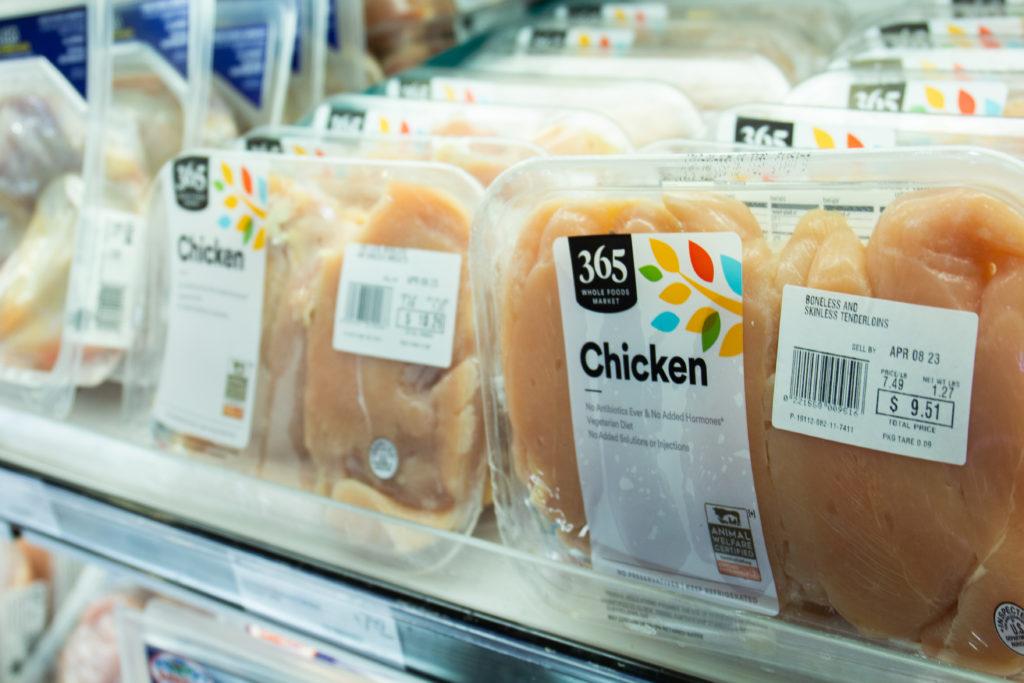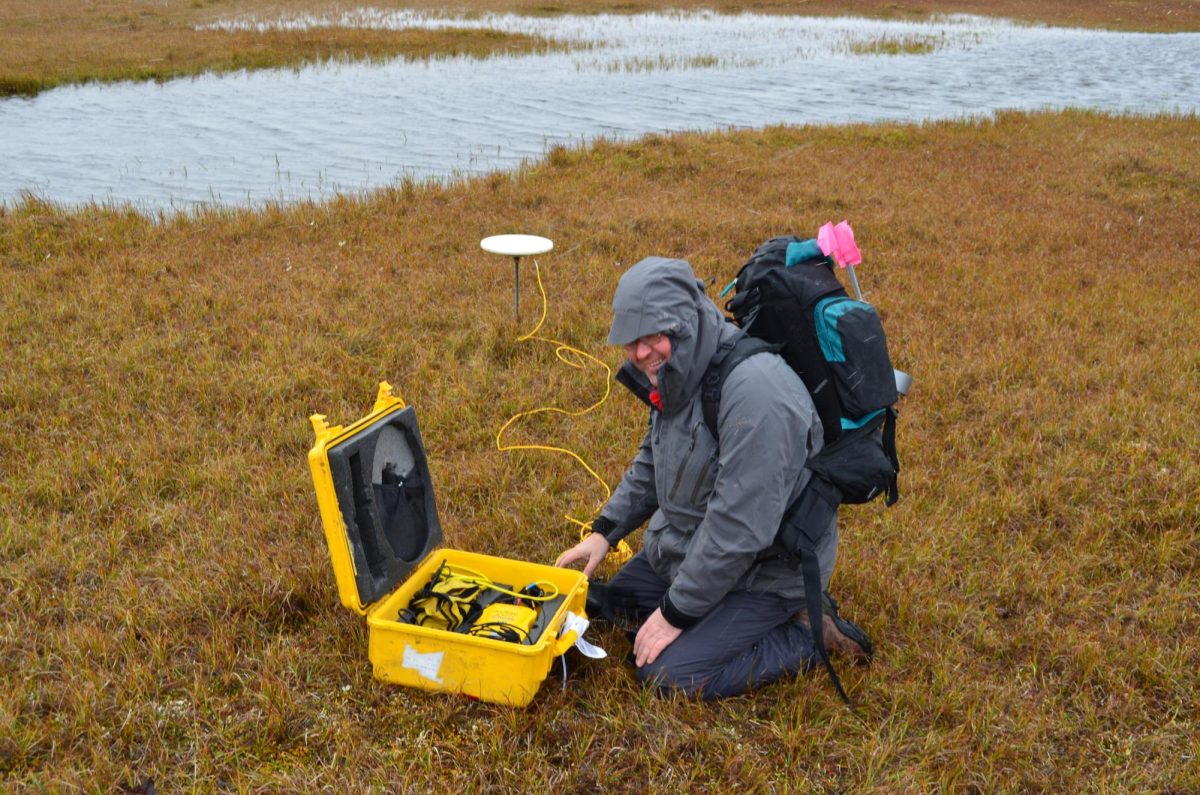E. coli bacteria found in grocery-store chicken, pork and turkey can cause more than half a million urinary tract infections annually, according to a Milken Institute School of Public Health study released late last month.
Lead researchers Lance Price and Cindy Liu, both professors of environmental and occupational health, managed a team that found extraintestinal E. coli strains – bacteria from outside of the intestines commonly originating from meat – cause between 480,000 and 640,000 UTIs annually in the United States. Price, a professor of environmental and occupational health, said the study raises awareness about people who are prone to UTIs, like women, to take extra precautions when preparing meat like avoiding cross-contamination, cooking meat thoroughly and avoiding the consumption of raw meat.
Price said the researchers used genome-tracking methods to find that E. coli from meat causes 8 percent of UTIs annually in the U.S. He said research before 2012 on a possible connection between E. coli and UTIs generated interest in reaching further findings in the field.
Price said researchers spent the first year of the study collecting E. coli samples from grocery stores in Flagstaff, Arizona because the city didn’t have industrial-scale meat processing facilities. He said the researchers spent the next eight or nine years sequencing the genomes from the E. coli samples and “struggling” to analyze the meaning of the complex data collected. Price said researchers ultimately traced the origins of E. coli in patients to grocery-story meat products to find E. coli causes more than half a million UTIs.
“We wanted to estimate the fraction of human urinary tract infections that were being caused by foodborne E. coli,” Price said.
UTIs cause more than eight million doctor visits in the U.S. each year, and about two in five women and three in 25 men are diagnosed with UTIs during their lifetime, according to the Urology Care Foundation.
Price said UTIs can be life-threatening since the bladder is a gateway to the bloodstream and kidneys, meaning infections from the bladder can travel to vital organs of the circulatory system.
Meat, along with raw vegetables, is one of the primary carriers of E. coli strains that cause infections like UTIs, according to the Centers for Disease Control and Prevention. While E. coli strains are normal in food, strains that can cause intestinal problems are most often found in raw or undercooked food, and health officials recommend using a meat thermometer to see if meat is cooked thoroughly, which kills UTI-causing bacteria in the meat, according to the CDC.
Price said preventing transmission of foodborne E. coli strains that cause UTIs is not only an individual responsibility but also a public health obligation to prevent infected meat from reaching the grocery store. He said vaccinating animals against extraintestinal E. coli strains would inhibit the spread of the bacteria before the meat reaches the grocery store. Price said researchers should partner with the U.S. Department of Agriculture or institutions relating to veterinary research to target manufacture vaccines.
“I think we should partner with the food animal industry or the USDA or people at vet schools and say, ‘Alright, let’s target these really aggressive strains for vaccination in the animals,’” Price said.
Experts in food science and microbiology said while individual precautions are useful to prevent UTIs, researchers should track infections back to the animals themselves to find the origin of the bacteria, like the study did through genome sequencing.
Rodney Moxley, a professor of veterinary medicine and biomedical sciences at the University of Nebraska-Lincoln, said meat grows the E. coli quicker than other food because of the amount of nutrient-rich ingredients like iron, which allows the bacteria to survive and grow.
He said animals transported to meat-processing facilities can host E. coli, but industrial commercial facilities are often equipped with the cleaning infrastructure to control the bacteria. Moxley, a former Department of Agriculture veterinary investigator in processing plants, said smaller processing facilities that don’t sell meat commercially can have fewer health inspections than commercial facilities, but the cleanliness of the facilities varies and doesn’t depend on the size.
“When we’re talking about these huge commercial processing facilities, they’re professionals and they have in place a lot of controls for things,” Moxley said. “It’s not in their best interest to have contamination issues.”
Francisco Diez-Gonzalez, a professor in the department of food science and technology and the director of the Center for Food Safety at the University of Georgia, said the study acts as a warning for people who are prone to UTIs so they can become aware of safety precautions like the proper cooking temperatures to prevent UTIs. He said the link between E. coli and UTIs isn’t surprising because humans consume many microorganisms daily, which can come from animal products.
“So make sure that you minimize your risk of what you’re consuming by cooking meat well, all the poultry, beef, pork, making sure that you cook them well, and when you handle, the other thing is using good hygienic practices in the kitchen,” Diez-Gonzalez said.
Marion Nestle, a professor of nutrition, food studies and public health at New York University, said E. coli is a normal intestinal pathogen that can either be harmless or dangerous, and microorganisms have introduced new genes to E. coli that have made it “pathogenic.”
“The objective should be to keep chickens from getting contaminated in the first place,” Nestle said in an email.
Lydie Lake contributed reporting.






